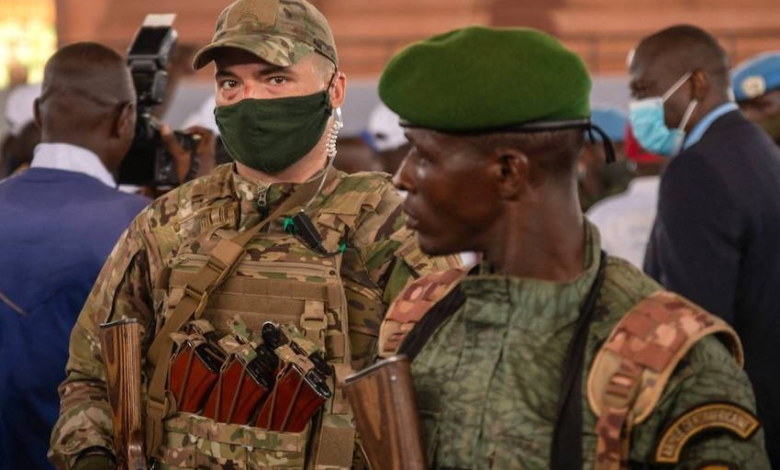Mali Denies Knowledge Of Human Rights Violations By Its Military
The denial is in response to evidence collected by leading rights group Human Rights Watch and presented to the government

The government of the Republic of Mali says it is “not aware” of alleged human rights violations committed by its own armed forces, or by foreign fighters contracted to operate in the country, according to authorities in the West African country.
The denial was contained in a letter written to Human Rights Watch in response to evidence of cases of human rights violations, collected by the New York-based rights group and presented to the government.
HRW published the response to its investigations. In two earlier letters HRW had written to the government of Mali, revealing the findings of its latest investigations in Central Mali. They include accounts of executions, arrests and beatings amongst other violations.
HRW’s investigations showed there was “unlawful execution of at least 35 civilians (including 2 children and 5 women), the arbitrary arrest of at least 9 men, the enforced disappearances of 50 men -8 of whose bodies were found by what followed- the torture of a dozen people arbitrary detained in an army camp, as well as the looting and destruction of civilian property,” the letter to the Malian government said.
The denial comes at a key time for Mali, as the United Nations mission supporting the government against insurgent forces is approaching its end.
Accusations
HRW says the evidence it has collected is reliable, Malian armed forces and foreign fighters had committed executions and forced disappearances of civilians.
“Four bodies had their throats slit to the point where the heads were almost completely cut off. Their feet were bound. It was hard to look and the smell that emanated from the bodies was pungent, obviously, the animals had already begun to gnaw on the bodies,” one villager told investigators.
In a reply dated July 20, the country’s Ministry of Foreign Affairs and Cooperation responded to Human Rights Watch. The minister said the investigation was “poorly done” and was executed in a way that incriminated Mali’s armed forces, emphasising that the government “maintains very close relations with almost all organisations for the defence of human rights.”
The government pointed to the methodology of the investigations, conducted via telephone interviews, which they said consisted of “a display of allegations on the basis of non-contradictory testimonies” and are “not supported by any tangible evidence.”
To answer the inquiries made on the opening of investigations into the alleged human rights violations, the Malian government said that it is “ not aware” of said violations. It said it has instructed the Public Prosecutor in charge of a specialised unit to open a judicial investigation into war crimes “against X.”
It was unclear what the capital letter X contained in the paragraph referred to.
Foreigners
The government also denied any involvement of alleged foreign forces in its military operations, said to be the Russian private military company Wagner Group. The government said its armed forces “conduct military operations completely anonymously.”
Other comments provided by the Malian government include those addressing preventive measures and detention in military camps.
HRW said interviewees had confirmed the violations took place while Malian forces conducted “military operations in response to the presence of Islamist armed groups in Ouenkoro, Séguéla, Sossobé, and Thioffol villages, in Mopti and Ségou regions.”
Witnesses told HRW the foreign fighters who did not speak French were present at some of the incidents. They were “described as ‘white,’ ‘Russians,’ or ‘Wagner’.”
Testimonies of villagers and eyewitnesses against Malian and alleged Wagner forces range from cases of battery, assault, looting, “disappearing”, arrests, and outright killings.
Roots
For well over a decade, the West African country has struggled to contain the insecurity ravaging its core.
Though the roots of insecurity can be traced back to the distrust between North and South Mali early post-independence as well as the Tuareg rebellions of the 1990s, the current insecurity is directly linked to the Tuareg Uprising of 2012.
The Tuareg, one of the ethnic groups in Mali’s North, a region which has from the inception of the country’s independence in 1960 decried its marginalisation and mistreatment, is said to be at the heart of Mali’s past rebellions.
The grievances between the North and South of Mali are such that the four recorded Tuareg rebellions and five peace agreements between both regions have failed to bring the longstanding hostilities to an end.
In June this year Malian president instructed the United Nations to withdraw its “stabilisation mission” from the country. The UN has complied, and the force known as MINUSMA will withdraw by the end of the year.
HRW called for the Economic Community of West African States and the African Union to step in and “express concerns”.
Summary not available.
Support Our Journalism
There are millions of ordinary people affected by conflict in Africa whose stories are missing in the mainstream media. HumAngle is determined to tell those challenging and under-reported stories, hoping that the people impacted by these conflicts will find the safety and security they deserve.
To ensure that we continue to provide public service coverage, we have a small favour to ask you. We want you to be part of our journalistic endeavour by contributing a token to us.
Your donation will further promote a robust, free, and independent media.
Donate HereStay Closer To The Stories That Matter




